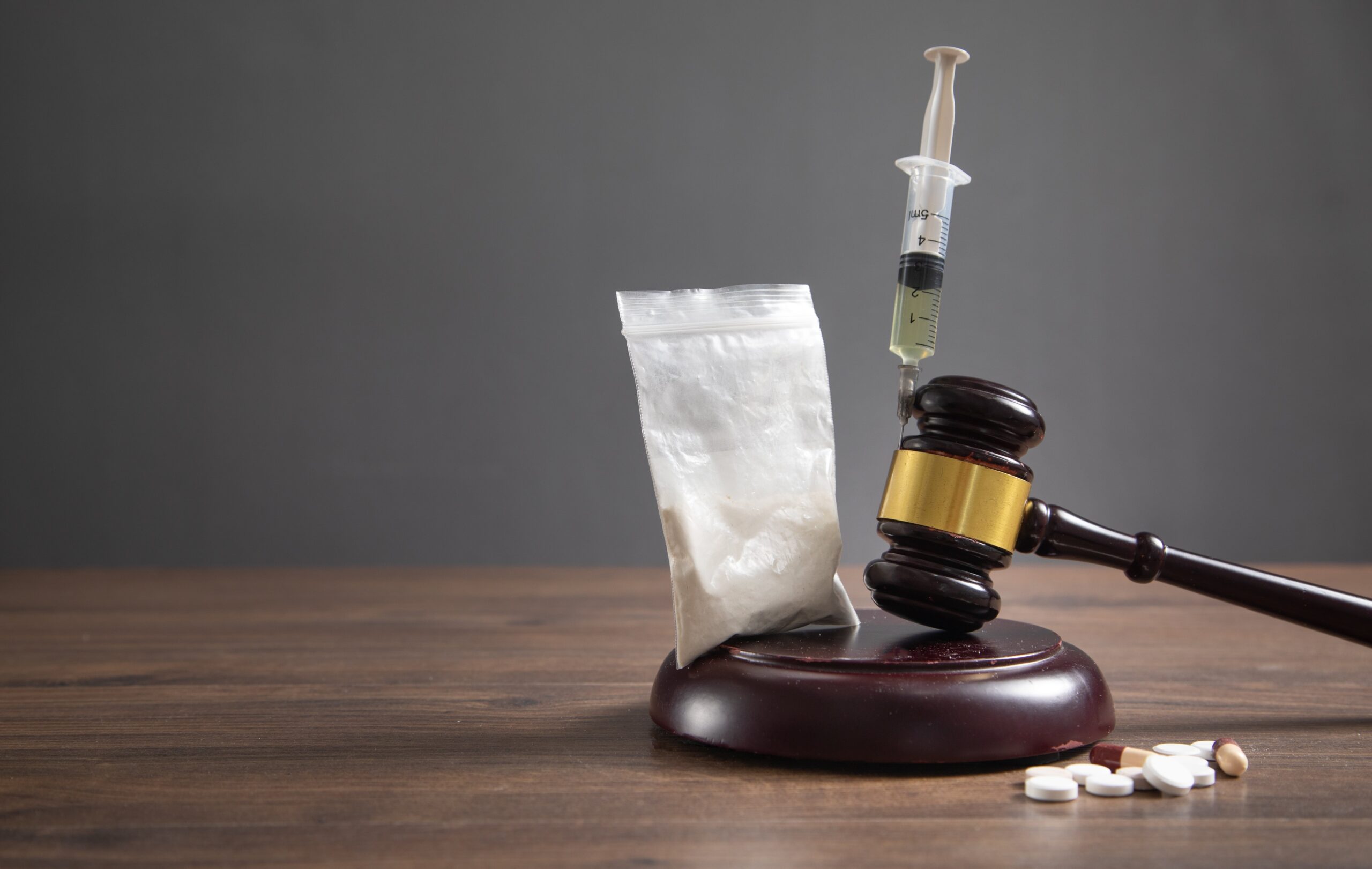Share This Article
The Drug Court of New South Wales is a specialist court which sentences and assists in the treatment of eligible adult offenders who have a drug dependency.
The Drug Court Act 1998 (NSW) establishes the court and its operation. Its main goals include promoting the re-integration of such drug dependent people into the community and reducing the need for such persons to resort to criminal activity to support their drug dependencies.
There is a Drug Court in four locations, being Parramatta, Toronto, Sydney, and Dubbo.
It takes referrals of offenders from the Local and District Courts who are dependent on drugs and considered to be eligible for the program.
Who is Eligible for the Drug Court?
To be considered eligible, you must be:
- Highly likely to be sentenced to fulltime imprisonment if convicted,
- Dependent on the use of prohibited drugs,
- 18 years of age or over, and
- Willing to participate in the program.
You are also required to have pleaded guilty or indicated that you will plead guilty to the relevant offence. The program is also restricted to offenders living in the following Local Government Areas:
- Bayside
- Canterbury-Bankstown
- City of Blacktown
- City of Campbelltown
- City of Cessnock
- City of Fairfield
- City of Hawkesbury
- City of Lake Macquarie
- City of Liverpool
- City of Maitland
- City of Newcastle
- City of Parramatta
- City of Penrith
- City of Randwick
- City of Sydney
- Cumberland
- Dubbo Regional
- Georges River
- Port Stephens
- The Hills Shire
- Waverley
- Woollahra
You will not be considered eligible if you have been charged with:
- an offence involving violent conduct,
- a sexual offence,
- an offence punishable under Division 2, Part 2 of the Drug Misuse and Trafficking Act 1985 (NSW) (‘DMTA’) if it is not capable of being dealt with summarily (i.e., in the Local Court).
Such offences under the DMTA include drug supply involving commercial and large commercial quantities, as well as cultivation involving indictable quantities (when using enhanced indoor means), all the way to up to large commercial quantities.
You will also not be deemed eligible for Drug Court if you are suffering from a mental condition that could prevent or restrict your participation in the program.
What is the Drug Court Process?
If the court (Local or District) deems that you appear eligible and willing, it has a duty to refer you to the Drug Court. If it finds this, the Magistrate or Judge at the court will make an order referring the matter to the Drug Court closest to where the person resides.
The court officer will then contact the relevant Drug Court Registry, providing details of the referral.
Prior to being brought before the Drug Court, the Registry staff will conduct a preliminary eligibility screening based on the location of residence and your age.
It is important to note that where there are more eligible applicants than there are available program places, a weekly random selection process occurs. Practically, due to the number of matters referred to the court, this almost always occurs.
It involves a randomised ballot which will determine which offenders are assigned to available places on the program.
The registry of the Drug Court will then notify the court which referred the offender regarding the outcome of the referral after 1pm on ‘ballot day’.
This is Mondays for the Hunter Region and Dubbo, and Thursdays for Parramatta and Sydney.
During a first appearance before the Drug Court, preliminary inquiries will be made regarding eligibility, primarily focused on evaluation of drug dependency.
Justice Health will conduct a preliminary health assessment and further investigations as to the offender’s eligibility will be made.
Subsequently, an offender can formally be deemed eligible, and enter the ‘assessment and detoxification’ stage.
If the court decides that an offender is eligible, they will be remanded into custody for detoxification and assessment. Eligible offenders are held in the ‘Drug Court Unit’ which is annexed to the main clinic of the MRRC and separated from the main prison inmates.
It is compulsory for Drug Court participants to enter custody. This is applicable even where you were referred to the court whilst on bail (i.e., in the community) whilst prior proceedings were on foot.
During an offender’s time in custody, the requirements of Drug Court will be explained to them, and their program (referred to as a ‘Treatment and Case Plan’) will be developed.
This will take approximately two weeks. The treatment plans offered include abstinence, as well as methadone and buprenorphine programs.
The treatment plan may require an offender to enter a residential rehabilitation centre. However, it may also allow them to live in accommodation nominated by a participant and approved by the Court, or in supported accommodation organised by the Court.
An offender may still be excluded from participation after the assessment stage because of ineligibility, unwillingness to participate, or lack of a highly suitable treatment plan.
Once a treatment plan has been prepared, the offender will appear before the Drug Court and is required to enter their plea of guilty, subsequently receiving an initial sentence for the relevant offence.
This sentence will be ‘suspended’ upon the offender entering into the Treatment and Case Plan, which involved an agreeing to an undertaking that you will abide by your program conditions.
It is important to note that as there is no automatic right for a person to enter a Drug Court program, there are no appeal options available against a decision of the Drug Court to refuse to allow a person to enter a Drug Court program or against the initial sentence imposed.
Furthermore, where a person is on a program there is no appeal against any decision taken by the Drug Court relating to the conditions of a program or the imposition of rewards or sanctions.
What Happens in the Drug Court Program?
During a program, the Drug Court can confer rewards on a participant which range from a round of applause to a decrease in supervision or in the frequency of counselling or other treatment.
It can also include special privileges such as being allowed to seek and take part in employment, a decrease in the frequency of testing for drugs or a change in the nature or frequency of vocational and social services which the participant is required to attend.
Rewards are offered where participants maintain a satisfactory level of compliance with their program.
On the other hand, sanctions may also be imposed if a participant fails to comply.
The most severe sanction available (aside from the program being terminated) is imprisonment in a correctional centre of up to 14 days.
Other sanctions include withdrawal of privileges, an increase in the frequency of counselling or other treatment, supervision, or drug testing and a change in the nature or frequency of vocational and social services which the participant is required to attend.
The court closely monitors its participants, which can thus result in sanctions or rewards.
Meetings occur people including the Judge, a Director of Public Prosecutions solicitor or police prosecutor, the clinical nurse consultant, community corrections division co-ordinator, and defence solicitor. Following this, the Judge will speak to the participant about their progress.
The Drug Court program will last for at least 12 months unless it is terminated sooner.
It may be terminated earlier in circumstances where the:
- court decides that the participant has substantially complied with the program.
- participant applies to have it terminated.
- court decides that the participant is unlikely to make any further progress in the program, or that further participation poses an unacceptable risk to the community that the offender will re-offend.
Once the Drug Court program is terminated (either due to finishing its period or by the factors outlined), the court will reconsider the participant’s initial sentence, and subsequently impose a final sentence.
This may or may not involve a full-time custodial sentence, and the court is required to consider the nature of the offender’s participation in the program, any sanctions imposed during the program, as well as any time spent in custody in relation to the relevant offence.
The final sentence may be the same as the initial sentence, but it cannot be more severe.
It is important to note that a final sentence is appealable.
Where the court is able to deem that a participant has substantially complied with a program, a non-custodial sentence is usually ordered.
Book a Lawyer Online
Make a booking to arrange a free consult today.
Call For Free Consultation
Call Now to Speak To a Criminal Defence Lawyer
Over 40 Years Combined Experience
Proven SuccessAustralia-Wide
Experienced LawyerGuarantee
 (02) 8606 2218
(02) 8606 2218
 (02) 8606 2218
(02) 8606 2218












